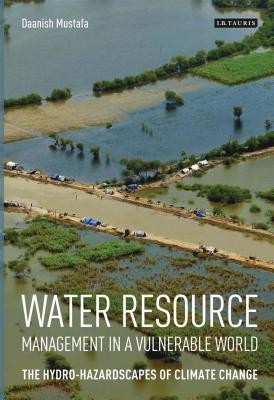
- We will send in 10–14 business days.
- Author: Daanish Mustafa
- Publisher: I. B. Tauris & Company
- Year: 2013
- Pages: 256
- ISBN-10: 1848855362
- ISBN-13: 9781848855366
- Format: 15.8 x 23.6 x 2.8 cm, hardcover
- Language: English
- SAVE -10% with code: EXTRA
Reviews
Description
Access to water, and the threat of climate change, are two of the most challenging issues for our planet. A global population now exceeding 7 billion people, together with growing numbers of countries adopting a more water intensive lifestyle, are placing increased demands upon the world's water resources, whilst global climate change promises rising sea levels and increased flooding in some of the world's most densely populated regions. How are we to address the twin challenge of global water sufficiency and future climate change? Existing attempts to improve the management of local water resources, and to alleviate the hazard of flooding, have often fallen short of the desired result: attempts by governments and NGOs to provide modern solutions, for example, have created unforeseen problems adversely affecting future water resources and leading to increased vulnerability to crises. Daanish Mustafa's important new book outlines the need to develop an integrative approach. He introduces the concept of hydro-hazardscape to show how the diverse social groups affected by a hazard may view it differently, with the result that their view of the potential threat may also differ.
It is only by adopting an approach that is attentive to the complexities and multiple values of water in the communities affected, that we may hope for any measure of success. Drawing upon a range of international examples from South Asia, Central America, the Caucuses and the USA, at scales ranging from the local to basin wide, the author shows how the hydro-hazardscape approach will help negotiate not only the existing challenges of equity and environmental quality but also that of long-term sustainability in a future filled with climate change.
EXTRA 10 % discount with code: EXTRA
The promotion ends in 20d.03:30:24
The discount code is valid when purchasing from 10 €. Discounts do not stack.
- Author: Daanish Mustafa
- Publisher: I. B. Tauris & Company
- Year: 2013
- Pages: 256
- ISBN-10: 1848855362
- ISBN-13: 9781848855366
- Format: 15.8 x 23.6 x 2.8 cm, hardcover
- Language: English English
Access to water, and the threat of climate change, are two of the most challenging issues for our planet. A global population now exceeding 7 billion people, together with growing numbers of countries adopting a more water intensive lifestyle, are placing increased demands upon the world's water resources, whilst global climate change promises rising sea levels and increased flooding in some of the world's most densely populated regions. How are we to address the twin challenge of global water sufficiency and future climate change? Existing attempts to improve the management of local water resources, and to alleviate the hazard of flooding, have often fallen short of the desired result: attempts by governments and NGOs to provide modern solutions, for example, have created unforeseen problems adversely affecting future water resources and leading to increased vulnerability to crises. Daanish Mustafa's important new book outlines the need to develop an integrative approach. He introduces the concept of hydro-hazardscape to show how the diverse social groups affected by a hazard may view it differently, with the result that their view of the potential threat may also differ.
It is only by adopting an approach that is attentive to the complexities and multiple values of water in the communities affected, that we may hope for any measure of success. Drawing upon a range of international examples from South Asia, Central America, the Caucuses and the USA, at scales ranging from the local to basin wide, the author shows how the hydro-hazardscape approach will help negotiate not only the existing challenges of equity and environmental quality but also that of long-term sustainability in a future filled with climate change.


Reviews